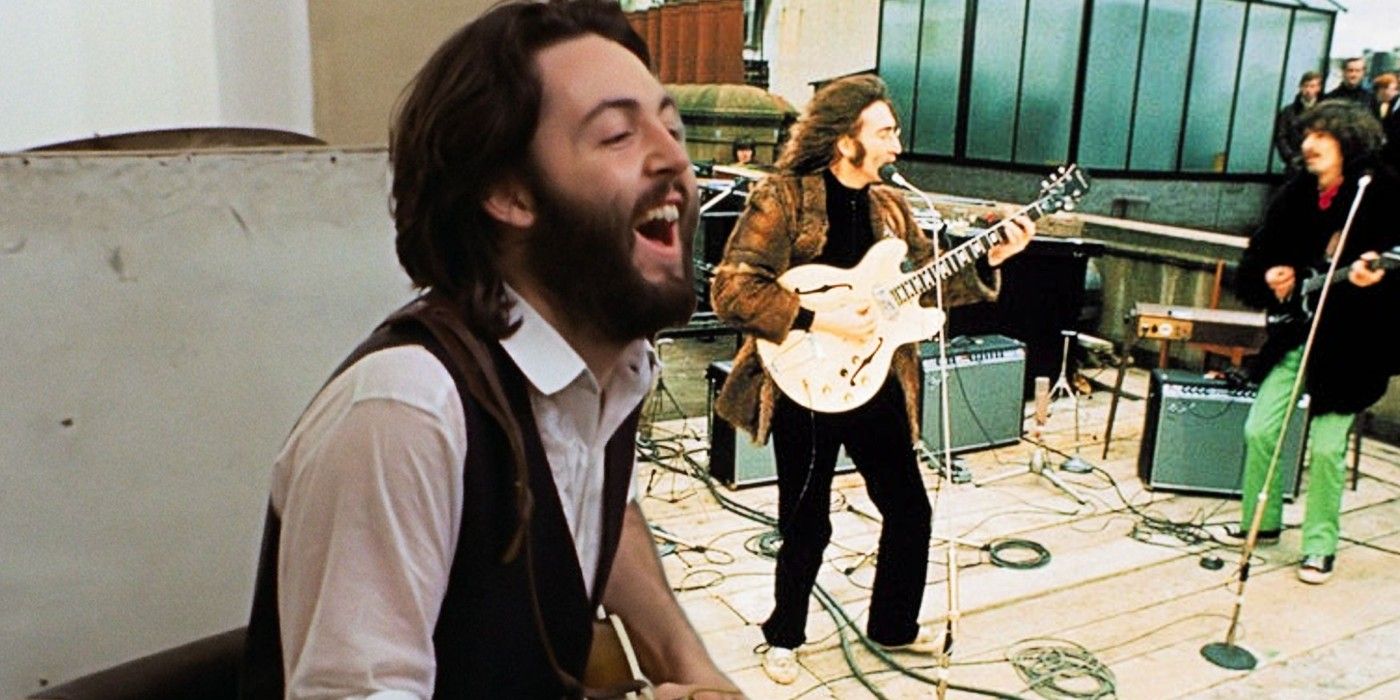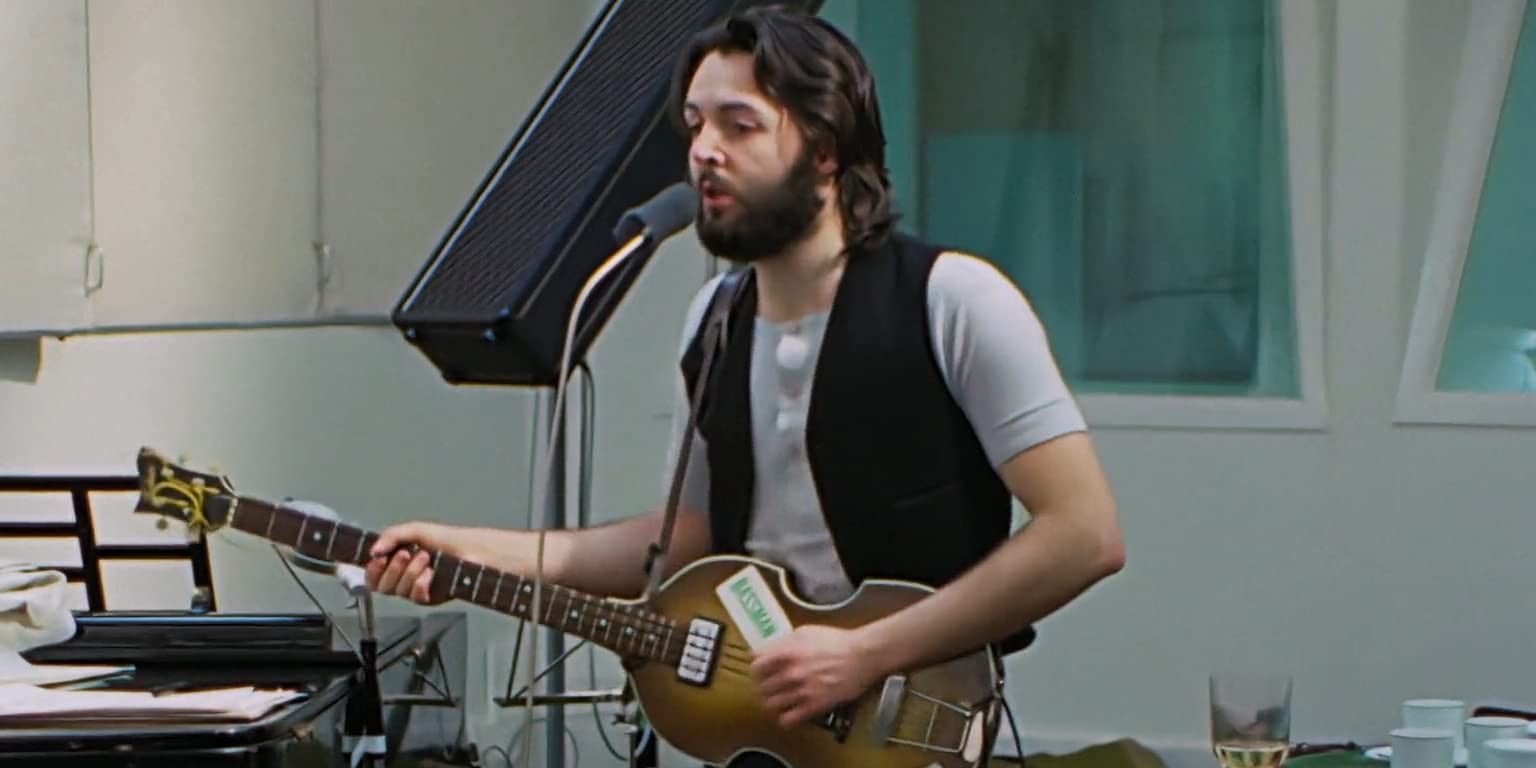Peter Jackson's The Beatles: Get Back gave audiences a rare and enticing glimpse of the Beatles in their natural environment, but it was Sir Paul McCartney who ended up seeming the most competent, interested, and engaging member of the iconic band. Jackson's Disney+ documentary series was hailed as a beautifully personal and intimate look at the fab four as they recorded their final album, Let it Be. The series was praised for giving viewers a more amicable vision of the Beatles, as stories had historically suggested that the recording of Let it Be was stifled by constant in-fighting and major disagreements between the four bandmates.
However, the series didn't shy away from showing that cracks were indeed forming between the old friends. George Harrison even left the band at the end of episode one after a disagreement with McCartney about "vamping" his guitar part. John Lennon retained much of his iconic "cheeky chappy" persona, though he regularly spent his time sitting vacantly beside his wife, Yoko Ono. Ringo Starr was perhaps the most affable of the group, though he rarely voiced much of a controversial opinion or gave input to the creative direction of the album. Paul McCartney, on the other hand, was vocal and in control, and pushed the others in the right direction.
The documentary captured Paul in moments of frustration but ultimately presented him as a man trying to be a leader when the Beatles needed one most. Indeed, the series referred to the role of the group's former manager, Brian Epstein, on several occasions. Paul even commented that the direction of "Mr. Epstein" was what had kept them in line for years. McCartney, therefore, tried to fit into this role, despite being open about how he wasn't comfortable telling his old friends what to do. He even admitted as much to Lennon in a vocal-only segment after George left the band, where Paul pledged to reconsider his approach to get the fab four working as a team once more.
However, it wasn't just his organizational skills that made Paul likable in Get Back. He crucially maintained a jovial sense of fun when working on the songs with the other Beatles. The documentary showed him regularly goofing off, swinging around the scaffolding at Twickenham Studios, reminiscing about past gigs, and putting on funny voices. In one scene, he even read out a scathing newspaper article about the Beatles whilst the group practiced, making fun of it and demonstrating that he wasn't bothered about what the papers were saying. Additionally, his mastery of any musical instrument he touched remained clear, and the series showed that he was responsible for the genesis of many of the album's best tracks, including "Get Back" and "Let it Be".
Whether intentional or not, Jackson presented Paul as the heart of the Beatles and, along with Ringo, its most reliable member. Lennon was repeatedly shown to be late to practice, and for much of the series, he appeared uninterested and lacking new material to bring to the table. George was perhaps the most dramatic member of the group, as he often seemed the most confrontational and the most "over" the experience of being in the band. Through it all, Paul was consistently crucial to keeping the Beatles together and organizing the direction of Let it Be and its subsequent live concert. He turned up on time and worked hard to keep everyone happy, even when it was becoming increasingly clear that the magic had gone. Though they still got on as friends, they simply didn't work as a band anymore.
The Beatles all generally came off well in The Beatles: Get Back, but it was McCartney who was the most admirable. His will to keep the Beatles going, his (sometimes clumsy) negotiation of band drama, and his enduring musical talent all culminated in his presentation as the best Beatle. Sir Paul can look back at the documentary series with pride and see that he did his best to save a band that was clearly falling apart when he easily could have just "let it be".


